In today’s post, I’m interviewing my lovely pal Jenny McGibbon of This Thing They Call Recovery about how she’s developing a career as a freelance graphic designer from home around her chronic illness.
I’ve been a huge fan of Jenny’s work since I first stumbled across her Instagram: she has such a clear aesthetic and fantastic way of visualising messages about so many issues that impact people living with chronic illness, and it’s been really exciting seeing her grow and develop over the last year.
I’ve been commissioning images from Jenny for my Instagram since April (bloody hell, time flies!) and I couldn’t be happier to be working with her…and we have some super exciting projects slowly coming together for next year too!
But enough of that – on to the interview!
Hi Jenny! Can you introduce yourself for people who don’t know you and your work?
Sure! I’m a chronically-ill graphic designer in my mid-twenties, and I run This Thing They Call Recovery. It started as a personal blog, and has turned into the brand behind my freelance design work. I want to raise awareness of how chronic illness affects your life, and not just your body. This Thing is my way of doing that.
I like creating content that educates but in a personal and approachable manner. I don’t believe all health content has to be daunting or solemn – there’s enough of that out there already. I want This Thing to be different, and so I like to include colour, illustration and handlettering to speak to the human side of ill health. Just because I’m discussing something serious, who’s to say I can’t have a bit of fun with it too?
What is your background, and why did you decide to start This Thing They Call Recovery?
I studied International Fashion Branding at university, and after getting my BA I decided to add on to it with a college Diploma in Visual Communication, which I graduated from this year. My chronic illnesses really hit when I was starting my last year of high school, so I’ve had to constantly take my poor health into consideration while engaging in further education. I’ve been full time, taken a year out, back to full time, and then dropped down to part time study.
It’s not been your “typical” journey with it but everyone’s different. Health has to come first, even if it is frustrating! I started This Thing They Call Recovery as a side project while at college. I started it for myself, but as I built on it I realized it was also helping others. That fuelled me to keep going with it, and it’s turned into my freelance business now that I’ve finished with education.
Can you talk me through your experience while studying and what adjustments would have made it more inclusive for you?
I’ve found myself to be very lucky with the lecturers I’ve had over the years, and I know I’ve been in a privileged position. I’m straight, white, cis, and am fortunate enough to have family that could help me financially throughout my studies. These components mean that I likely have had easier access to services than some other disabled students. I also have confirmed diagnoses which can sometimes make it easier to get staff to believe you about your needs. This absolutely should not be the case, but I recognise that as the system stands there are many others that are having different experiences to me.
Even though I know I’ve had it easy compared to some, it’s still been a struggle and there are definite things that made it easier, and definite things that made it worse. My college provided me with a pass to park in a disabled spot at the front of the building, since I was physically unable to walk from the main car park to my classroom. Without this I absolutely wouldn’t have managed. There was also a well-maintained lift in the building that allowed me to make it to my class. The staff were understanding of my limitations and the fact that I often had to work from home. I found college to be much more understanding of this compared to university, perhaps because the classes were far smaller and staff knew who I was.
One thing I would have really appreciated is having access to lectures online. This would have meant I could go through them easily at home, but my university didn’t have this system in place. I know many do, so maybe mine was the exception. And who knows, maybe they do now.
Even though my lecturers over the years were often very kind, there was also often a mix up in communication. Many times I travelled into college to find my attendance wasn’t necessary, or I was only in for ten minutes or so. Getting up, getting ready, and travelling there and back were all massive tasks for me. I wish there was more understanding of how truly difficult that sort of stuff is to the chronically sick. Is isn’t just doing the work, it’s everything that goes along with it.
One thing that really angered me (and it’s worth noting here that this is nothing to do with my particular college, and simply the system) is that I ended up having to pay more when I dropped down to part time compared to my full time fees. This is even though I was doing the exact same classes, getting the same credits, just over a longer time. I don’t think that’s fair considering it wasn’t my choice, and it was medically necessary that I dropped down. It was either that or leave, and if I hadn’t had my parents help there’s no way I could have stayed. I would have been exempt from paying if I was receiving benefits, but alas, our government doesn’t think I’m deserving of them. It’s a twisted system that unfortunately leaves many deserving students high and dry.
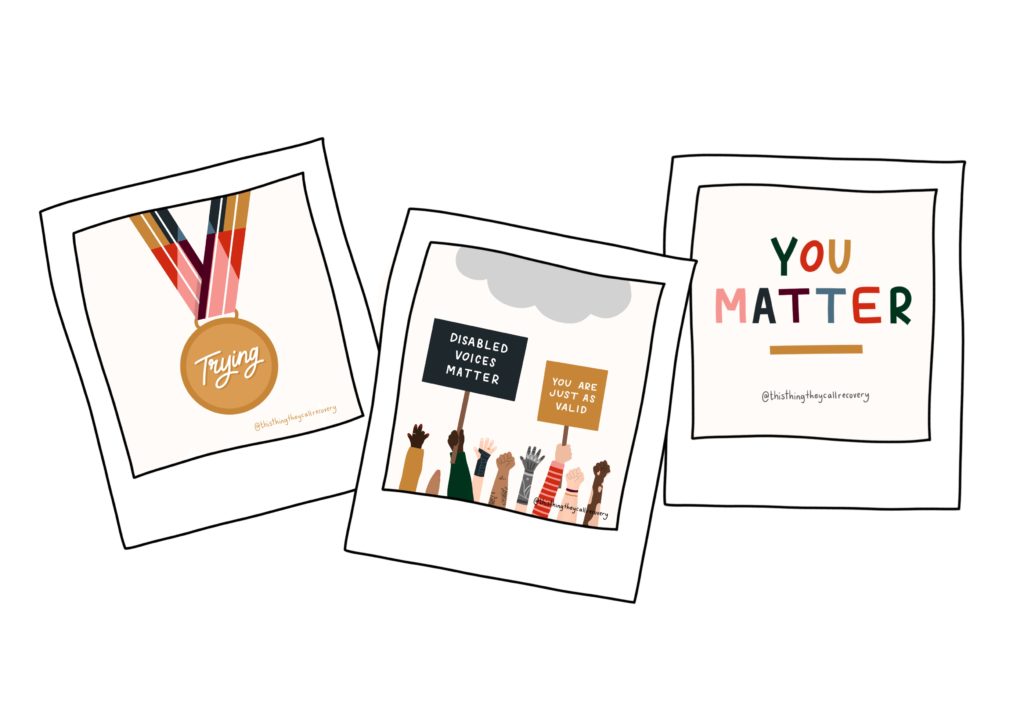
Can you tell me a little bit about your chronic illness and how it affects your work?
I was born with Gastroschisis, a birth defect affecting your abdomen. As a consequence of this, I have sections of both intestines missing and live with short bowel syndrome. This led to chronic internal bleeding and severe iron deficiency anemia when I was 16. I believe all this is what triggered my M.E at 19. Now it’s my M.E that affects my life the most, and 100% affects my ability to work. It affects every system in my body as well as my ability to leave my home. I can get my work done as long as I stay there, but it’s not exactly ideal.
Do you feel as though you had to work for yourself for health reasons? Or is this something you would prefer to do anyway?
It’s definitely for health reasons. I wouldn’t have chosen to go straight into full time freelance work after finishing education. I think there’s so much industry knowledge I could learn in an agency or an in-house position.
Ideally, if I was well, I’d have a full time or part time job and build up my freelance work on the side of that. That’s what most designers do, but I don’t have that option.
I’m having to build things up without that supplemented income, and even though things are going well it still obviously takes time.
This has led to financial stress, which obviously doesn’t help my health so I have to be really careful. It’s frustrating seeing jobs advertised that I know I would enjoy, and know I would be good at, but I can’t apply for because of my M.E. I wish I had more freedom with my options so I could feel a bit more secure while I build up my freelance client base.
I’m very passionate about what I do, and I believe myself to be skilled at it. I’d like that to be enough, and for employers to be more flexible.
What has been your experience of creating art and opening up conversations about topics around chronic illness on Instagram?
I’ve loved it! The reception has been truly amazing, and I’m so happy to hear that the work is making a difference. I get messages from people struggling with their own health saying they don’t feel alone anymore, and from others that say they have friends or family with health problems and my page has helped them to understand. I want to help facilitate more open and honest conversations between the sick and the healthy, and the feedback I’m getting tells me it’s working so far.
A lot of my freelance clients have found me through my Instagram page, so not only is it making me happy, it’s helping me gain work that is ideal for me in terms of the clients and briefs I’ve been getting. I’m very grateful, but there’s been a lot of hard work involved. I’ve only been putting real effort into Instagram for a year, so it’s definitely paying off and heading in the right direction. If this is how things are looking after a single year, I can’t wait to see what comes next.
Do you have anything set up to specifically help you balance your health with your work?
The fact I do all my work from home really helps. I also take great care to listen to my body, and pay attention to the cues it’s sending me. If I need a break, I take one. I’m sure as things grow and I get busier I’ll have to readjust. My priority at the moment is setting up healthy habits, I don’t want to start in a way that’s not sustainable. This is my learning period of figuring out what works for me, and I’m determined to ensure I’m not putting my health at risk. Easier said than done I know.
How do you manage your deadlines and expectations from your followers/people you work with when you’re not feeling great?
I create pretty much all of my Instagram pieces in advance. I generally have between a week and two weeks’ worth of uploads ready to go, and then I write the caption when I want to put it online so it’s still relevant to how I’m feeling at the time of the upload. I’m lucky that because I create work around chronic illness and disability, it’s obvious that I’m not well from the outset. I find people are generally very understanding because they were aware of my health situation before even getting in contact with me to enquire about freelance work.
I actually haven’t found my M.E to interfere with my ability to stick to deadlines, and am actually normally ahead of the game. If I can’t work in the morning (spoiler: I never can) then I work into the evening. If I feel crap on Thursday I’ll work on Saturday. The stuff gets done, and being freelance gives me the freedom to make up hours I maybe miss because of a flare up of symptoms. Paid work takes precedence, and my own brand-building stuff is a bonus. It helps that I genuinely thoroughly enjoy what I do, and it really matters to me. If that means I work the odd Saturday, so be it.
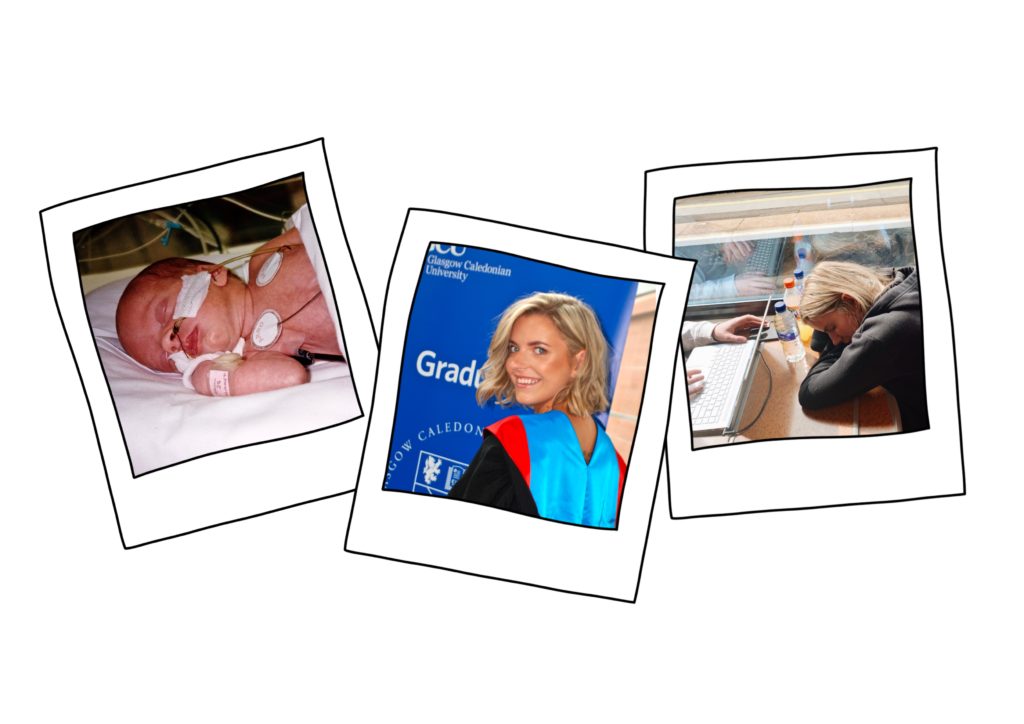
What is your favourite thing about being a freelancer?
I love the control I have. For my own stuff I’m in total control of what it says, what it looks like, what colours are used etc. That means a lot to me. I love that I’m creating client work that aligns with my values, and I get to say yes or no to projects.
Obviously turning down money is hard, but if a potential collaboration really doesn’t fit, and my integrity is under question, it’s simply not worth it for me.
I really enjoy the range of projects I’ve been getting, the variety is really fun. My current clients include health charities, bloggers and accessories, clothing and stationery brands and I really enjoy the mix.
I love that I’m using business and marketing knowledge I gained through my branding degree, as well as the creative skills I honed during my graphic design qualifications. I’m bringing both sides together to truly add value to my clients, and I think that makes me stand out.
I might be freelance, and I might not be able to come into your office, but I can still add value. I’m glad I have that option with this career, and that being a freelance designer isn’t unheard of, even if you’re perfectly healthy.
And to flip that, what are the biggest challenges of being a freelancer whilst chronically ill?
I’ve struggled not to compare what I’m doing now to what the healthy version of me would be capable of.
Yes, the healthy version that doesn’t even exist. I’m comparing myself against an ideal, not even a real person, but it’s difficult not to.
I struggle with the idea that I’m having to go much slower than I would like to, and that’s really frustrating. I always want to be doing more, but I recognize that that isn’t sensible or safe for me, so as frustrating as it is I actually think I’ve become quite good at pacing.
I want to be doing everything now, but I know that I’ve found what I’m passionate about. I’ve found what I want to be doing, and I have my whole life to do it. Being angry at myself for not having everything nailed by 25 is silly, even if understandable, and I try to remind myself of that.
Do you have plans in place for unexpected flare ups?
When I flare I just hole up and rest, and I have all the Harry Potter DVDs on stand-by for such occasions.
Like I mentioned, I haven’t found flare ups to interrupt my freelance work, I think because I do it all from home in my own time. Pacing has definitely helped me keep on top of work.
The issue is then also having energy to do things for fun – what a novel idea I know, “fun”. I think I’ve avoided flare ups because my focus has been work and I’ve not been doing too much outside of that.
Obviously that isn’t sustainable long term, and I’m now trying to get more balance. Unfortunately a balanced life isn’t always an accessible idea, and trying to aim for that while avoiding flare ups is seemingly impossible right now. I’ll let you know if I crack it!
What advice would you give to someone with a chronic illness who’s looking to become a freelance designer?
I would say use your own best judgement, and do what you feel works best for you regardless of whether or it’s the same as what others are doing.
Utilise the internet, I know it’s difficult when you can’t network in person etc, but the internet can help. Make work that you’re passionate about, it really shows through.
Know that you don’t have to make work surrounding health and disability if you don’t want to. Just because you’re sick doesn’t mean you have to stick to this industry, it’s just what I wanted. It doesn’t have to be what you want. Take your experience and apply it to other industries if that’s what brings you the most joy.
Another tip, don’t let your own relationship with money skew your perspective. I’ve spent a lot of time being skint and ineligible for benefits, so even a fiver is a lot of money to me when it comes to my spending.
But know your worth, a fiver is absolutely nothing to a business.
Hundreds and thousands of pounds are the same, depending on the business. Charge what you’re worth, and don’t do anything for free.
I know it can be really tricky, if it’s a job you really want then reduce your scope to fit their smaller budget, but on principle don’t do work for free. You’re worth more than that. Sick people have bills too, often more than a healthy person would have. You are absolutely deserving of a decent wage.
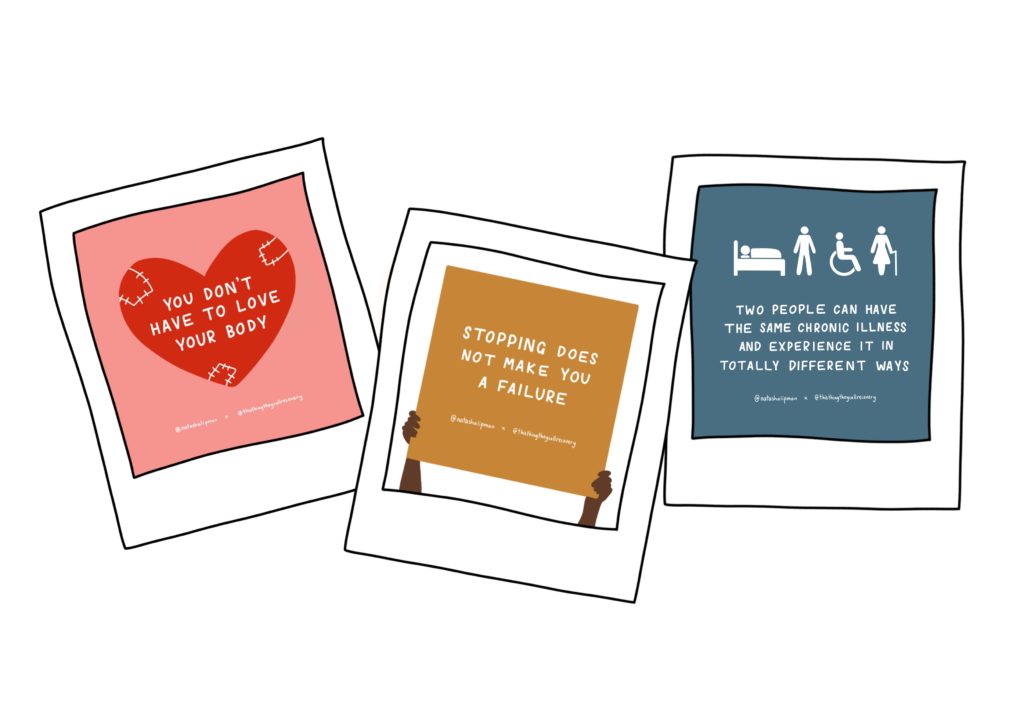
What are your top time management tips?
I’m a very organised person, and never leave anything to the last minute. I can’t afford to, what if at the last minute I flare?
Start briefs as soon as you’re able, even if it’s just a little bit. Spread things out into smaller chunks over a longer space of time. I did the same at college, and would have projects finished before others in the class had even started. It’s not that I don’t work well under pressure, it’s just that I’d prefer not to.
Can you talk a little bit about art theft on Instagram and share some ‘best practice’ tips for sharing art/work on Instagram? I know even with our collab pieces, people have been using them and editing them, not giving us credit, using your art and my words, and it’s really frustrating!
It’s definitely frustrating for sure. I think people forget that for artwork to be online, someone made it. Someone out there put time, effort and passion into creating every piece you see. They deserve to be credited for it. I understand that some people just aren’t aware, and they don’t mean harm. But the problem is that if one well-meaning individual shares edited work without thinking of the consequence, it can then be shared from there and it snowballs. It isn’t just a case of one person doing it one time, this is a massive problem.
I think a lot of people are unaware that because of Intellectual Property Law, I own everything I make. It isn’t free for use, it’s mine. I own it. And therefore no one has the right to edit it in any way and share it without credit, regardless of whether or not you’re planning on making money off it. It’s never a harmless act, even if the person has innocent intentions. It can lead to more, and like I said it snowballs. It’s disheartening when I’m trying so hard to raise awareness. I’m sick too, and I’m trying to do some good. No one deserves to have their work taken.
Sharing online absolutely helps me to grow, and reach more people. I’m so grateful when someone shares my work correctly, it really does mean so much to me. But please never edit anyone’s work in any way. This includes adding a filter, cropping, adjusting colours etc. Please never take out a watermark, and never use someone else’s work to promote your own business, a sale etc, unless you’ve paid the artist for the creation of a piece for you. Please always tag the artist in the image, and tag them clearly at the start of the caption. If you don’t know who made the work, you can reverse image search it on Google to try to find the original creator. After that, if you still can’t find the source, please just don’t share it. “Image source – Pinterest” simply doesn’t cut it.
If you like work enough to want to share, you should respect the maker enough to credit and leave the work unedited. Once edited or uncredited work is out there it’s nearly impossible for the creator to do anything about it, and that’s assuming they’re aware of it. They’re probably not if it’s not been credited. A brand can then take that uncredited image and use it for their own monetary gain. That isn’t fair.
So many people are (rightfully) angry at brands when they see them ripping off independent creators. What I think a lot of people don’t realise, is it often starts with one well-meaning but incorrect share online. Please don’t add to it.
What can we expect to see from you in 2020? Maybe some fun little projects with me? 😉
Definitely, watch this space people!
I’m really excited about 2020. I feel like this year was about finishing college, setting up the logistics of the business and figuring out what it is I really want to be doing.
And well, it’s this. I’ve found it.
Next year will involve more brand collaborations, more writing as well as more design, and helping more brands, businesses and charities alike. I want to continue using both my marketing and design knowledge to help tackle the taboo nature of ill health. 2020’s just the start.
A huge thank you to Jenny for taking the time to answer my questions! You can check out her Instagram here and her blog here.
As always, if you’d like to support me and my work (aka help prevent over-reliance on Instagram and its bloody algorithm), all I ask is that you subscribe to my newsletter.

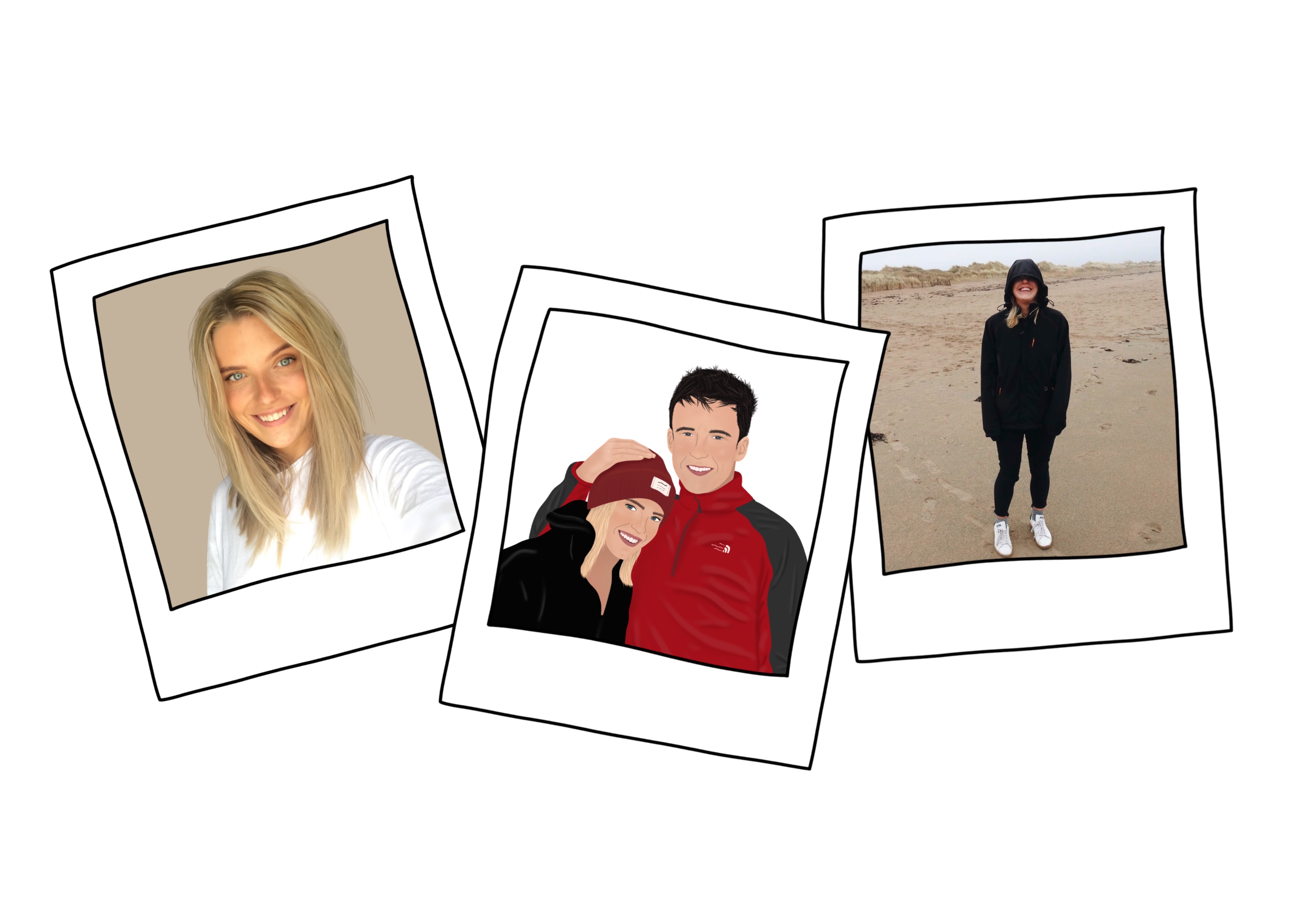
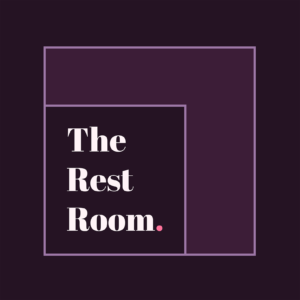
1 thought on “This Thing They Call Recovery: Being A Chronically Ill Graphic Designer With Jenny McGibbon”
I am glad that your friend Jenny found a job which she enjoyed and her job is very flexible when she feels down and she cannot work on that day.